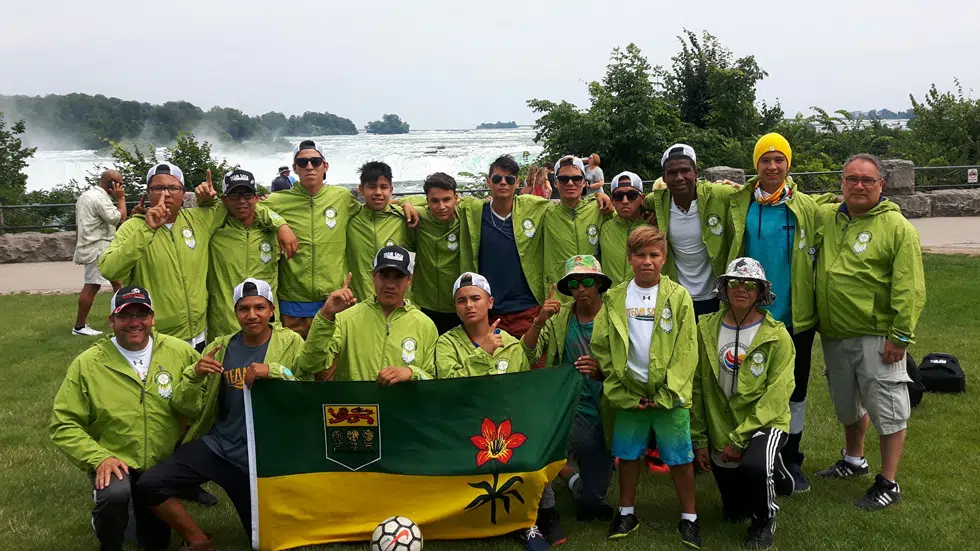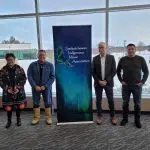
All 4 Sask soccer teams medal at NAIG
Battlefords Youth Soccer Inc. executive director Kelly Villeneuve is no stranger to the North American Indigenous Games.
He’s been to six of the eight competitions, first attending the 1990 games in Edmonton as a 16-year-old athlete.
At the 2017 games that took place in Toronto last week, Villeneuve, who is of Métis heritage, helped coach the 16U male soccer team to a silver medal.
In fact, all four Saskatchewan soccer teams that competed at NAIG won a medal, as the province won three silver medals and one bronze in the sport.


